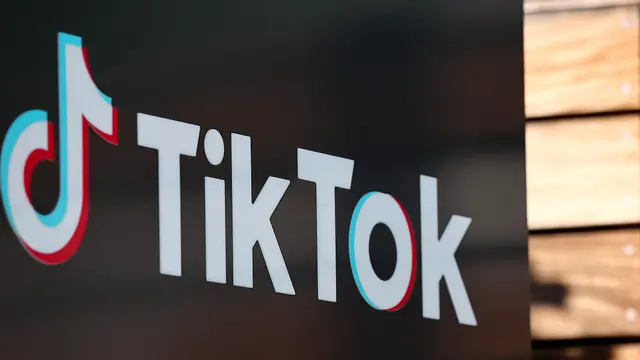The Republican-led House of the U.S. state of Montana approved a bill last Friday banning TikTok in the state, making it the first U.S. state to pass legislation banning the popular social media app on personal devices. The move has triggered outcry from civil rights activists.
According to the bill, entities such as Apple and Google's app stores and TikTok itself would be prohibited from allowing residents in Montana to download TikTok.
Entities that violate the ban will face penalties of up to $10,000 per day, according to the bill which has not specified how the state would enforce or monitor the ban.
The prohibition will take effect from January 2024 if enacted.
Nationwide outcry
The move triggered opposition across the U.S. arguing that it infringes on citizens' rights to free expression and access to information.
A representative from the advocacy group TechNet said it would be impossible to enforce the law as Apple and Google app stores are unable to geofence apps on a state-by-state basis.
A previous version of the bill had required Internet Service Providers (ISPs) to block connections to TikTok in Montana, a task that ISP representatives said was not feasible.
Soon after Friday's vote, TikTok condemned the bill on both logistical and First Amendment grounds.
"The bill's champions have admitted that they have no feasible plan for operationalizing this attempt to censor American voices and that the bill's constitutionality will be decided by the courts," TikTok spokesperson Brooke Oberwetter said in a statement on Twitter.
"We will continue to fight for TikTok users and creators in Montana whose livelihoods and First Amendment rights are threatened by this egregious government overreach," she said in the statement.
In an open letter sent to the Montana House of Representatives, the American Civil Liberties Union (ACLU), ACLU of Montana, and half a dozen free speech and civil liberties' organizations pointed out that passing the legislation would flout the First Amendment and trample on Montanans' constitutional right to freedom of speech.
The ACLU called the move a violation of free speech rights that "would set an alarming precedent for excessive government control over how Montanans use the internet."
"The government cannot impose a total ban on a communications platform like TikTok unless it is necessary to prevent extremely serious, immediate harm to national security. But there's no public evidence of harm that would meet the high bar set by the U.S. and Montana Constitutions," said the ACLU.
Riana Pfefferkorn, a research scholar at the Stanford Internet Observatory, said the jurisprudence of the First Amendment was clear on this case.
"It's clearly unconstitutional," she told the U.S. monthly Wired, as Montana Attorney General Austin Knudsen "admitted the purpose was to keep people from both saying and hearing legal speech."
Civil rights advocates also noted that Montana's bid against TikTok was the latest example showing the U.S. authorities' attempt to cite the so-called "national security" as an excuse to violate people's legal rights.
"Government has long appealed to 'national security interests' to justify intrusions on protected First Amendment activity," said Ari Cohn, free speech counsel at TechFreedom, a non-profit, non-partisan technology think tank based in Washington, D.C..
Tesla CEO Elon Musk said in an interview with the BBC that "It would help Twitter I suppose if TikTok was banned, because then people would spend more time on Twitter and less on TikTok. But even though that would help Twitter, I would be generally against banning of things."
U.S. costing liberties and rights to contain China
Einar Tangen, a senior fellow at the Taihe Institute, a Beijing-based think tank, shed light on the ban and expressed doubt over its feasibility in an interview with CGTN.
"Obviously, it's an attack against China. At this juncture, what they're going after is the hardware. We've already seen it with Huawei, with the denial of chips, chip-making machinery, even if it's not in the U.S., and now they're going after software."
"So it's clear that the Cold War in terms of tech is there. But in terms of if this is going to be useful, then I can assure you it isn't. There's really no way that they can check on this, and there are so many legal issues with it. It's going to be very hard to see this as anything other than symbolic," said Tangen.
Tangen also noted that such a ban is an infringement on the country's First Amendment which protects five freedoms including speech, religion, press, assembly, and the right to petition the government.
TikTok, which is owned by Chinese tech company ByteDance, is facing growing calls from some U.S. lawmakers to ban the app nationwide over concerns about potential Chinese government influence over the platform.
Last month, a U.S. congressional committee grilled TikTok Chief Executive Shou Zi Chew about whether the Chinese government could access user data or influence what Americans see on the app.
TikTok has repeatedly denied it has shared data with the Chinese government and said would not do so if asked.
The company is working on an initiative called Project Texas, which creates a standalone entity to store American user data in the U.S. on servers operated by U.S. tech company Oracle.
(CGTN)
 简体中文
简体中文

